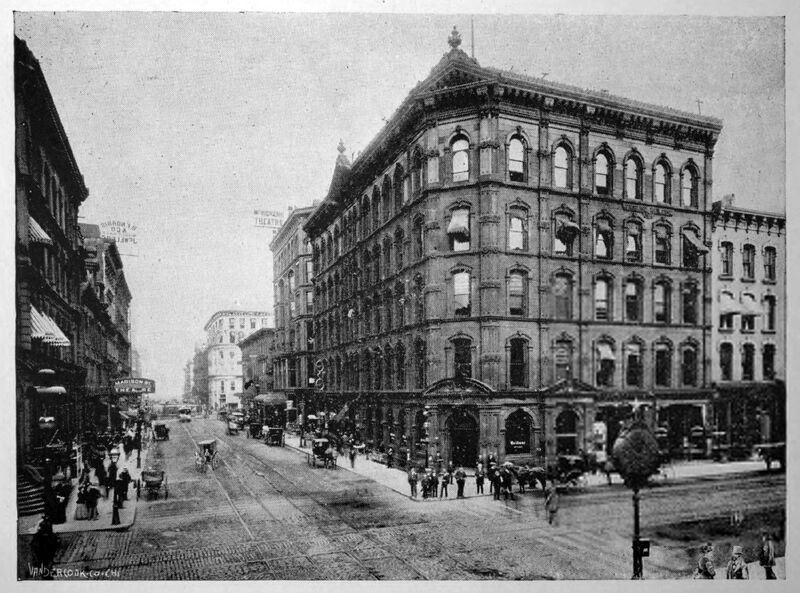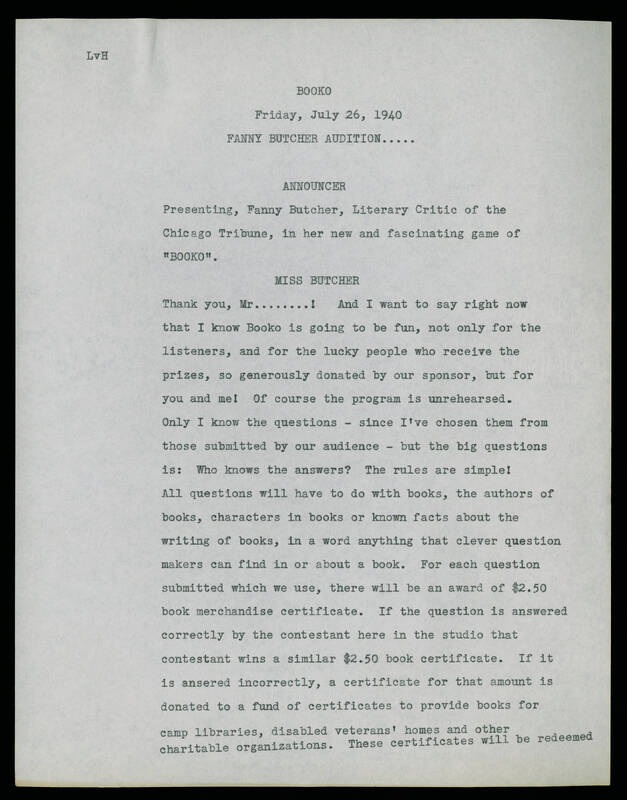Fanny Butcher: The Chicago Tribune
After a few years working with various small papers and magazines, Butcher gained membership to the Illinois Women’s Press Association. Naturally, she attended events put on by the organization, and at one such gathering, she met Mary Eleanor O’Donnell, an editor at the Chicago Tribune. In talking one-on-one, Butcher was intimidated by O’Donnell, and was worried that the editor would look down on her lack of experience in the field. However, O’Donnell had pulled Butcher aside to offer her a job at the Tribune, writing a women’s column. Butcher accepted and became the author of a column entitled “How to Earn Money at Home.”
After joining the team at the Chicago Tribune, Butcher proved herself to be a valuable writer. During her first few years, she covered a variety of topics; she was often directed towards women’s topics, such as society and beauty, as well as women’s moral court proceedings. It was around 1915 that Butcher took a step towards what she specifically wanted to do.
It was Butcher’s idea to start publishing more accessible literary writing on Sundays. This new review section, known as the Tabloid Book Review, contrasted with “the highbrow tone” of the Saturday reviews; Butcher’s new section included “lively notes on writers and the publishing world, plus spot reviews of the latest bestsellers” [5]. In order to make sure the new section got off the ground, Butcher volunteered to work on it “in her ‘spare time,’” of which there was most likely very little [5]. Thus began Butcher’s time as a book reviewer for the Tribune. The new section was wildly popular, and in 1922, when the paper was looking for a new literary editor, Butcher was promoted and filled the position.
During her time as literary editor, Butcher encouraged reading in a variety of ways. First and foremost were her reviews, which grabbed the public’s attention. Along with her writing, she spoke at events and at universities (including the University of Illinois at Urbana-Champaign), and even briefly had a radio show on which she interviewed authors. Additionally, between 1920 and 1927, she opened a very popular bookstore in the Pullman Building, which allowed her readers to support and connect with Butcher in a new way.
[5] Rima Lunin Schultz and Adele Hast, Women Building Chicago 1790-1990: A Biographical Dictionary (Bloomington: Indiana University Press, 2001), 132.


